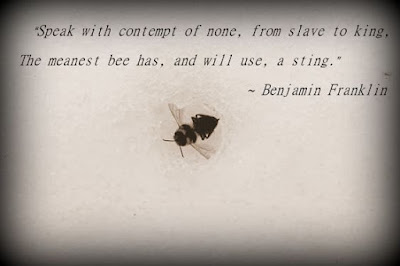We all tend to want to live without rules, or at least outside of them in some way. But how can we ever really live this way? To wander with no moral compass, no thought to rules, laws, ethics, or God whatsoever only leaves us lost. Just because that is the way we are prone to be, has no bearing on the fact that we cannot and should not live that way, because it is so far from what God has desired for us. We are supposed to be law-abiding people. Strange? It is sort of surprising, I'll admit. Yet, it's the only thing that makes sense in light of what happens to us, our families, our countries, our cultures when we undermine laws, morals, and rules.
Every journalist must also have guidelines and rules to hold himself accountable to, otherwise, how can he be trusted? How do you really believe, respect, rely on someone who doesn't have a standard they follow? How do you know what that standard is?
If you are in the business of sharing truth with others, you are making yourself accountable to your audience that you will tell the truth. If you claim to tell the truth, you are claiming to be honest, trustworthy, ethical. So you must clarify how you will and must be ethical. Write a code.
No. I don't mean something cryptic. Establish a code of ethics for yourself, and share it with your audience. This will help them keep you accountable. This will help them trust you. This will help you learn and become more reliable. And, as a journalist, shouldn't that be our aim? To grow in knowledge and truthfulness in every step of the way?
This journalist - or at least aspiring one - therefore puts forward my own code of ethics:
Code of ethics
- No stealing ~ Mainly, do not take credit for another's work. It is rather simple, do not take or claim anything that does not belong to you.
- No lying ~ This has to do with having others believe someone else's work is your own. However, it also extends to altering images, quotes, etc. to make it appear different than the original intent or event. Basically, do not be deceptive in any of the work you do.
- Be respectful of other people ~ Be gracious and thoughtful of others' feelings and rights. Share the truth, yet with grace. Be aware and concerned for your sources as well as your audience.
- Be honest and comprehensive ~ Do not present opinions without clarifying that they are such. Give more than one side of an issue to be objective and acknowledge the fact that everyone is biased in some way. Write in a way that will not be confusing to your audience, or will be least confusing.
- Always be truthful ~ This applies to every point already listed, but it should always be reiterated. Journalists must first and fore-mostly tell the truth. They must avoid situations that will cause people to question their integrity. They must show respect to all, but be very careful and clear when they show favoritism to any.
I did use some of the guidelines from https://nppa.org/code_of_ethics and http://www.journalismdegree.com/ethics/, as well as ideas from the course. They are not especially obvious though, and no quotes were used.





